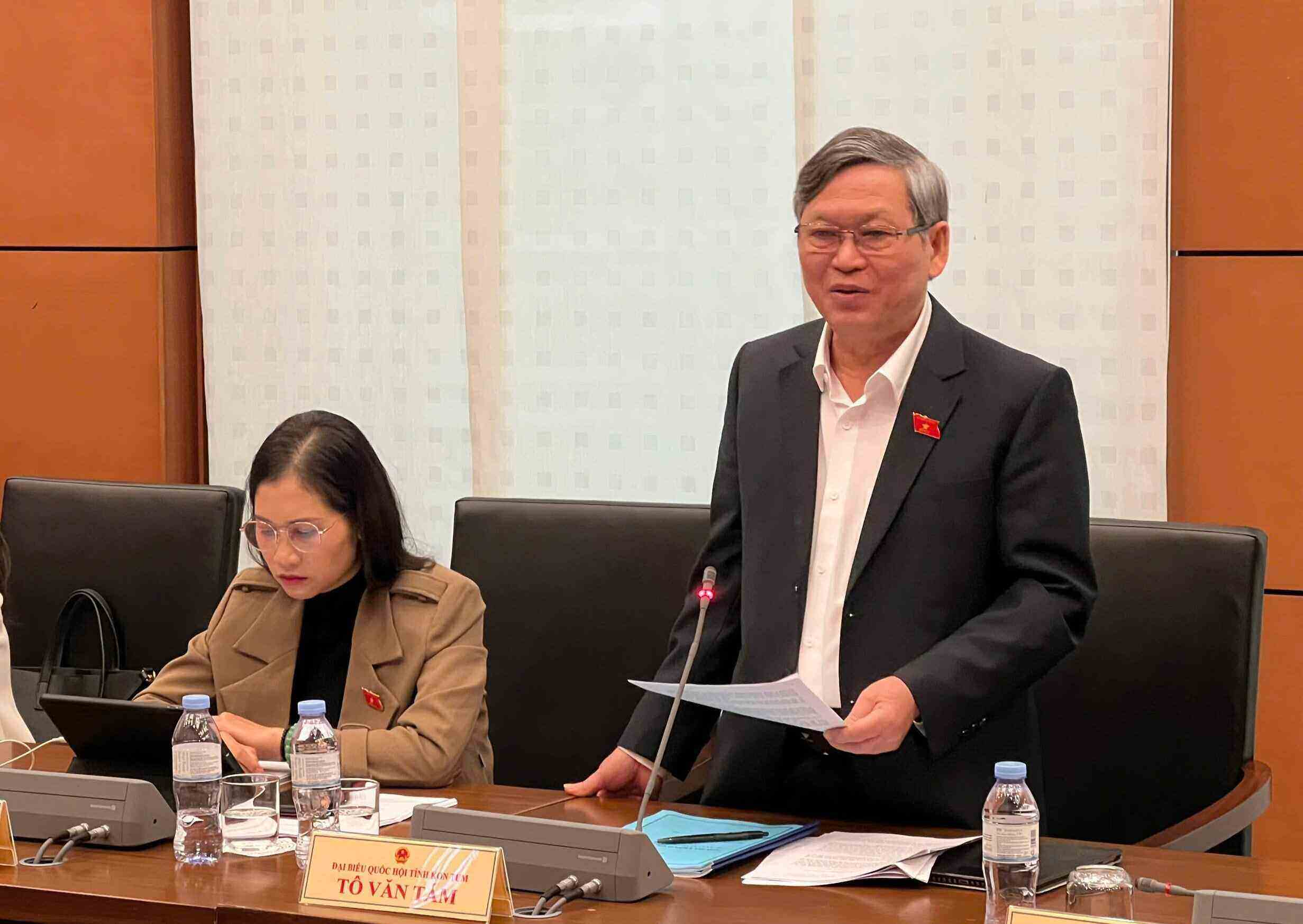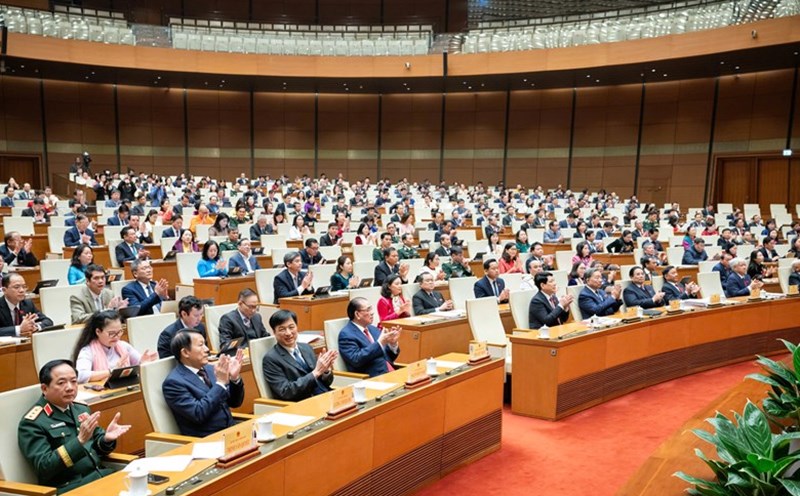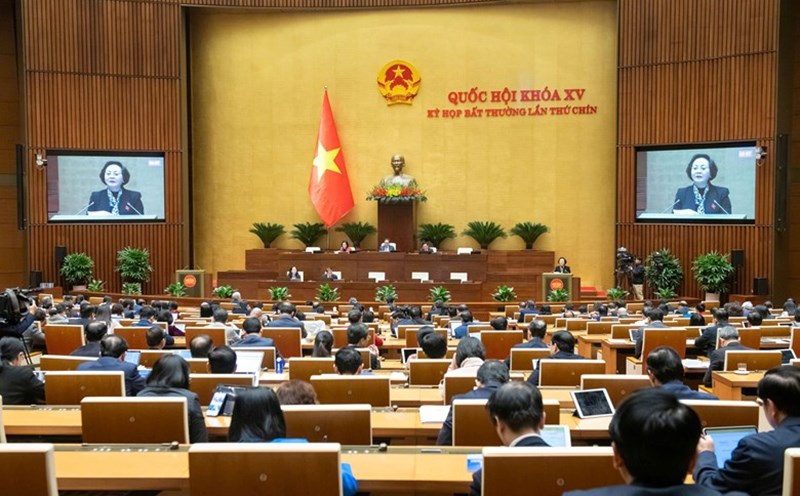Creating a legal basis for the process of restructuring the state apparatus
On the morning of February 13, continuing the program of the 9th extraordinary session of the 15th National Assembly, the National Assembly discussed in groups the Draft Law on Government Organization (amended), the Draft Law on Local Government Organization (amended) and the Draft Resolution of the National Assembly regulating the handling of a number of issues related to the arrangement of the state apparatus.
At the discussion session, National Assembly deputies expressed high consensus on the necessity of issuing a National Assembly Resolution regulating the handling of a number of issues related to the reorganization of the state apparatus, and at the same time contributed many opinions to the Draft.
Delegate To Van Tam - National Assembly delegate of Kon Tum province, Standing member of the National Assembly Law Committee emphasized that the restructuring of the apparatus is being carried out according to the Party's policy, with very fast progress. Therefore, the issuance of the Resolution is very important to create a legal basis for the restructuring process from the Central to the grassroots level.
During the reorganization process, many problems will arise, and legal gaps will inevitably arise because it is not possible to amend all laws at the same time. Therefore, a Resolution is needed as a basis for implementation, while ensuring the normal operation of the state apparatus and not affecting foreign affairs activities.

Referring to Clause 6, Article 4 of the Draft, delegate To Van Tam agreed with the provisions on supervision, inspection, audit and examination of agencies established or receiving functions and tasks after the arrangement. However, he questioned whether this provision covers all possible situations?
"Many agencies after the reorganization may cease operations, end operations, re-merge, or transfer functions and tasks. For example, the police force, when reorganized, will no longer have a district level but will transfer tasks to the commune level. If the police no longer have a district level, how will the prosecution and trial of cases under the district court be handled? Is it covered? We suggest reviewing further to clarify the regulations," Mr. Tam gave an example.
Delegate To Van Tam expressed his agreement with Article 13 of the Draft, as this allows the Government, the Chief Justice of the Supreme People's Court and the Chief Prosecutor of the Supreme People's Procuracy to consider and issue documents guiding the handling of issues arising when the National Assembly has not yet issued the amended law. "However, when the Government, the Supreme People's Court and the Supreme People's Procuracy issue such documents, they should also be applied according to the simplified procedure to ensure implementation progress," said Mr. Tam.
Proposal to adjust the implementation time of the Resolution
Sharing the same view, delegate Pham Dinh Thanh - Deputy Head of the National Assembly Delegation of Kon Tum province, member of the National Assembly's Judicial Committee affirmed the necessity of issuing a Resolution to ensure that the reorganization of the state apparatus takes place smoothly, without causing work interruptions.
Mr. Thanh also said that the Resolution should take effect immediately after being approved by the National Assembly, instead of from March 1, 2025 as in the draft. This is to ensure the principle of not disrupting the operation of the state apparatus and social life.
Regarding the implementation period, the Draft specifies that it will be effective for 2 years (until February 28, 2027). However, Mr. Thanh said that this is too urgent a period of time, because within 2 years, state agencies from the central to local levels must complete a series of legal documents to implement the apparatus arrangement. "This pressure will be very large, especially for the Government," Mr. Thanh said.
Therefore, he proposed extending the implementation period of the Resolution to at least 3 years, or until 2029, to ensure that the completion of the legal document system takes place carefully before entering the 2030-2035 term.












